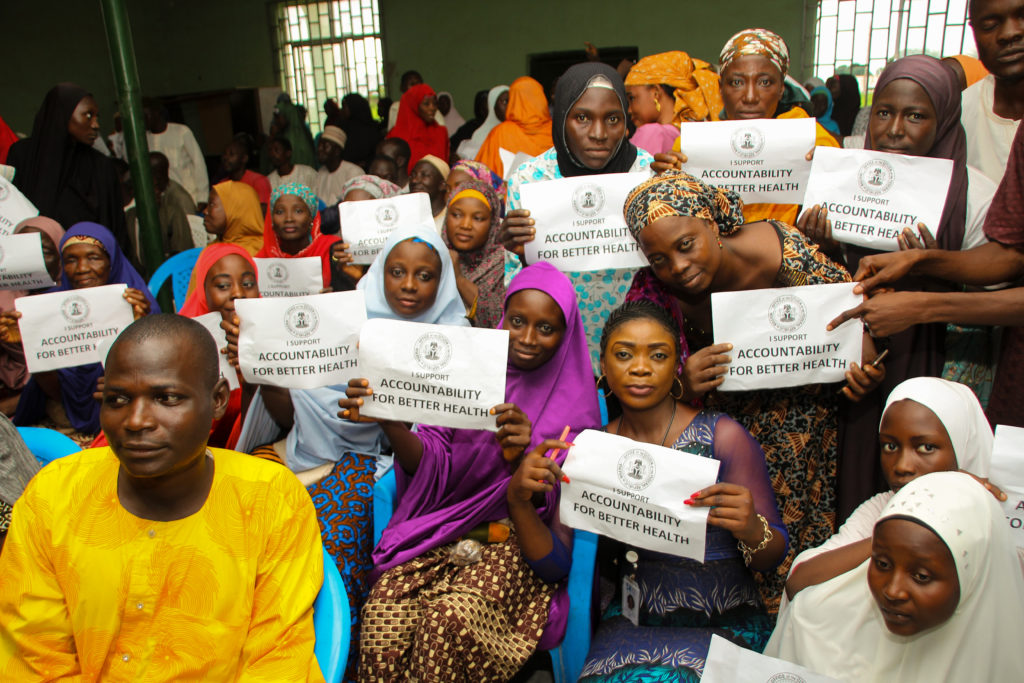
By Ndidichukwu Odoh
30 years old Maimuna Adamu has had six children between 2007 when she was 20 years old and newly married and 2017 October when she turned 29. Her first delivery in 2007 was at Wushishi Community in Wushishi Local Government of Niger State, Nigeria.
Maimuna’s first delivery at the health facility was her last, the other births were done at home with the help of an unskilled birth attendant.
Maimuna narrated her experience with healthcare in her small village. Her last birthing experience was tainted with heart breaking moments. “I almost died, instead of hospital I felt safe in the hands of mama” Maimuna said, narrating how “mama” a renowned unskilled birth attendant in Wushishi helped her and other women who would not visit the health facility for delivery.
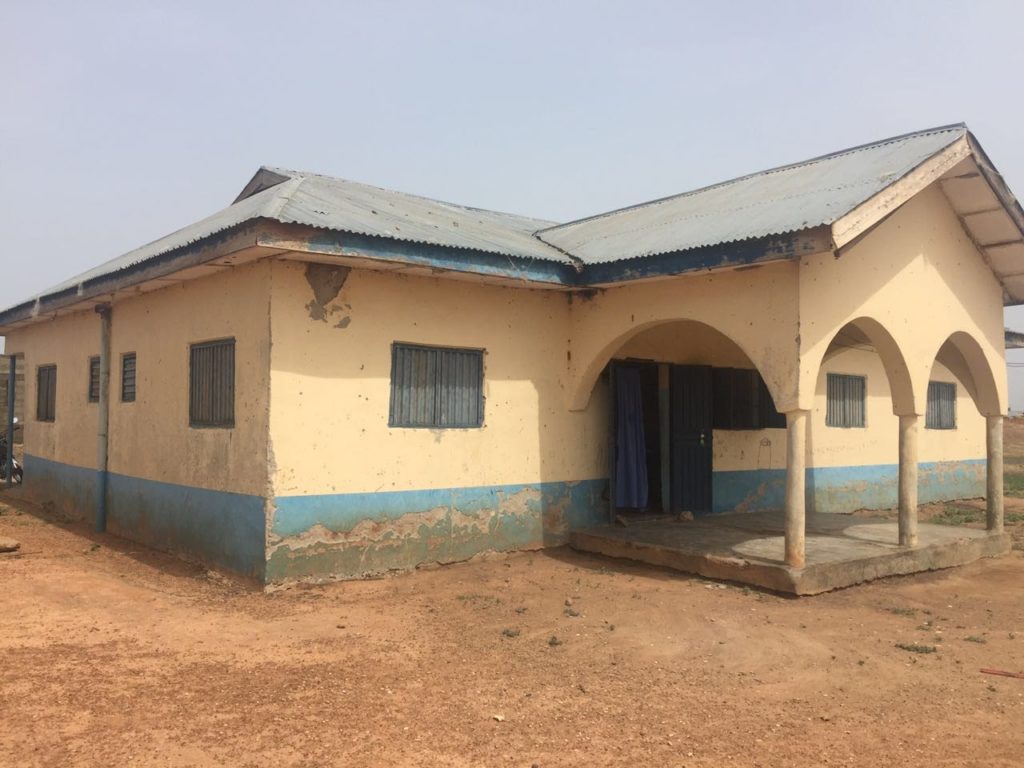
She recalled that she couldn’t deliver the other babies in her community healthcare center because at the time, there were no beds and lack of water in the hospitals. This made her to patronise the local untrained birth attendant.
“I was afraid because a lot of women also died in mama’s hands while giving birth but we believe it is the fate of those women and how god wants it to be” Maimuna explained
From 2007 to the time-2016-the White Ribbon Alliance Nigeria commenced its Citizen-Led accountability for maternal newborn and child health in Nigeria, childbirth in Wushishi was a death trap, women would rather chose to die in the hands of unskilled birth attendants than visit hospitals that are not functional and even more dangerous with unfriendly health workers.
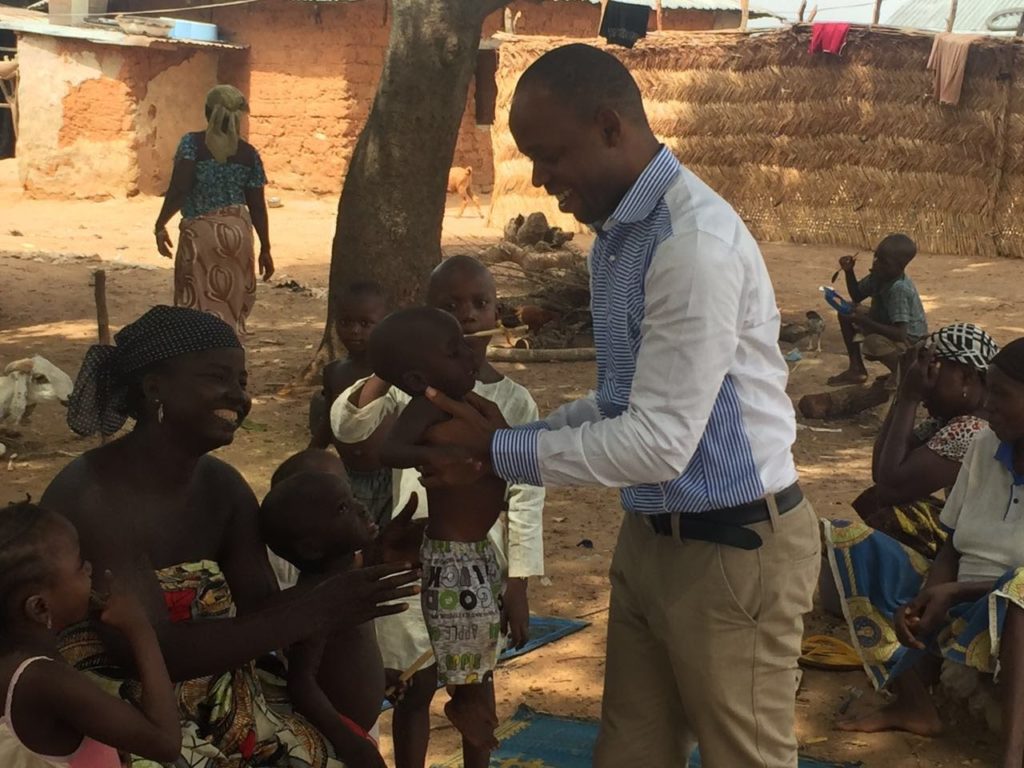
“The hospitals would have been my choice but even in the hospitals women die because there was no health worker there, only lizards is what you will see and the nurse and doctor that are around come once a week, the crowd is always too much for people” she said.
Maimuna had complications during her first delivery which would have been smooth with a good referral system, but that was not possible and available at the moment, there was no ambulance, and the people in the community would travel for hours to access the health center in the nearest community.
This she claimed made her to be fearful throughout the birthing process of her babies. Like Wushishi Health facility, majority of Nigeria’s primary health facilities have similar challenges, Lack of beds, water, curtains and well trained primary health workers contributes majorly to unpleasant experiences faced by Nigerian women during delivery.
Every 10 minutes, one woman dies on account of pregnancy or child-birth in Nigeria, giving a total of 53,000 per year. This means that about 800 women die in every 100,000 live births. Maimuna was lucky she did not die in the hands of unskilled birth attendants despite patronizing them, but her first experience gave her a very wrong impression about delivery at health facility.
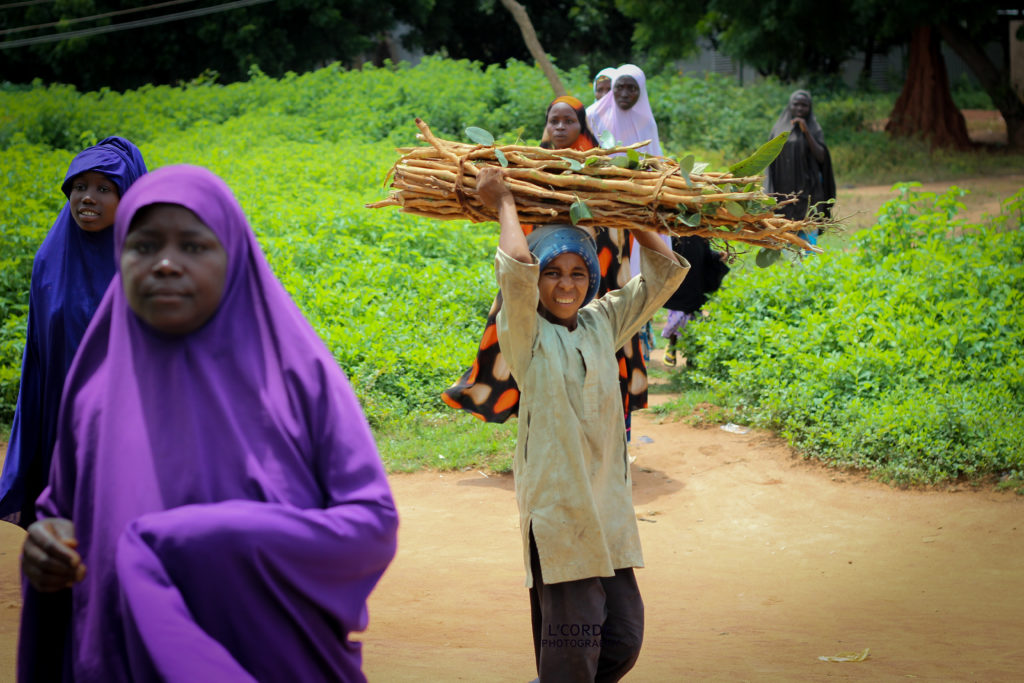
The 2006 National Census estimated the population of Niger State to be about 4 million. Niger State has 25 LGAs and 274 wards spread across three senatorial districts. The major ethnic groups are Nupe, Gbagi and Hausa with few other ethnic minorities. The major occupation of Niger State citizens is farming, families in Niger like other states in Nigeria struggle to survive and health is often out-of pocket, which makes childbirth a nightmare for most Nigerian families.
Prior to the White Ribbon Alliance Nigeria for safe motherhood Citizen lead accountability for maternal newborn and child health in Niger state, health facilities were poorly managed. There was inadequate funding for health especially Maternal Newborn and Child Health (MNCH), poor service delivery, shortage of human resources, misappropriation of health funding, poor access to family planning services, immunization, no working referral system or efficient ambulance system for emergency response.
“we commenced with advocacy visits to policymakers, traditional and religious leaders to initiate discussions on key actions that will promote citizen-led accountability. The community dialogue sessions were aimed at empowering citizens to demand increased citizen-led accountability and increase government response to commitments made, it also provided a platform for citizens to take the lead in developing the tools and processes for engagement of their leaders in Government and health facilities on RMNCH” said Mr. Tonte Ibraye WRAN’s National Coordinator.
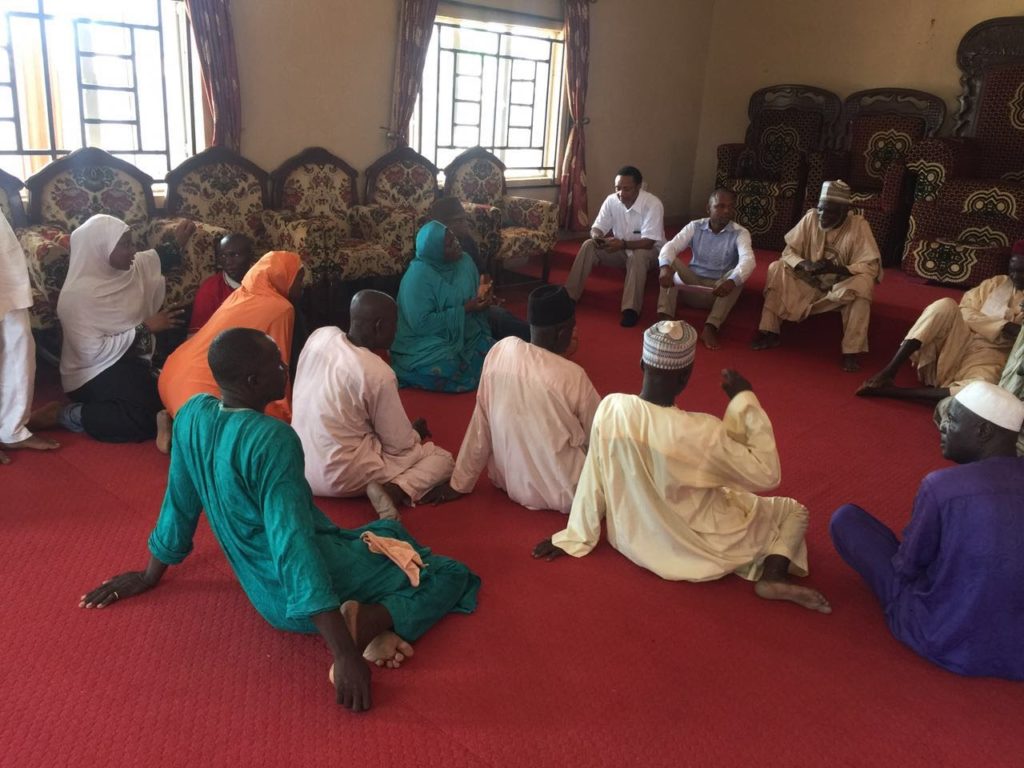
WRAN’s project activated interest and the right of citizens to engage in the decision making process of their health and give feedback regarding services delivery through town hall meetings.
“The town hall meetings provided a platform for citizens and policymakers to deliberate on challenges of MNCH and tools to integrate citizen-led accountability in RMNCH service delivery. The campaign so far has increased awareness and continues to galvanize public action for citizen-led accountability in MNCH service delivery and policy. The Government is also more responsive to the expressed needs of its citizens identified in the constructive engagement process” Ibraye said.
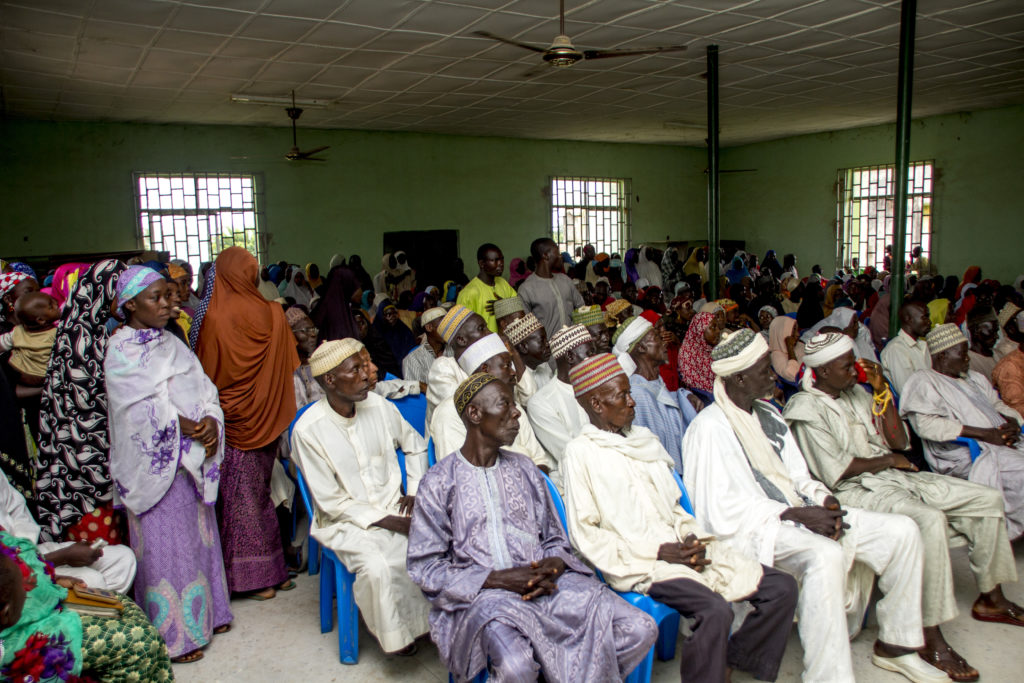
“By the time we had a public hearing, we were able to educate the communities on their health rights, the men understood why they have to support their wives during pregnancy to visit Primary Health Care facilities in good time, the women were able to go to the hospitals and ask the right questions about their health and pregnancy, that way more pregnant woman were going to the hospital” said Taria Adams Communications Officer for White Ribbon Alliance Nigeria.
Maimuna who participated in the Wushishi Town hall meeting in November 2016 narrated her ordeal, the policymakers, traditional leaders and partners heard her story, now Wushishi has a functional health facility. Maimuna now encourages other young mothers to visit the health facility for child birth and antenatal care. Wushishi Health facility currently has midwives and doctors working in it, and has been upgraded to meet the needs of women.
Ibraye said “White Ribbon Alliance Nigeria had a look at the many health challenges faced by women and girls, often the rights of the patients are not respected, the women accessing health in the communities do not even know their rights, and we activated a people-led movement for maternal health. We were able to reach to the communities and engaged them through public dialogue about maternal health because we internalized our focus, and understood what it is and how we want to do it for result.”
Making an impact for the health of Nigerian girls and women requires improved commitment of government to fund key maternal health policies, more CSOs, the private sector and philanthropists forming a synergy to support the government and the citizens buy-in, acceptance and use of available services.
“We are happy the Wushishi health facility can now deliver antenatal services and delivery every day. At least 10 women deliver in this same facility that was not functional as at four years ago, more women are saved from maternal death, because a citizen-led accountability program was done by WRAN” said Ibraye.
WRAN’s campaign has been endorsed as a catalyst for change by key decision makers like the highest traditional leader in Niger State, Emir of Minna. His Royal Highness (Dr.) Umar Farouq Bahago CON, who pledged his support for the campaign and encouraged citizen’s to plug into the campaign stating that citizen-led accountability will provide a platform for citizen’s voices to be heard and close the gap between political leaders and citizen. The endorsement by the traditional ruler also leads to more buy-in from citizens and other traditional leaders.
WRAN’s intervention in Niger state buttresses the point that constructive engagement by the Citizens and Government has the potential to effect changes that last a life time. It is important this occurs in a structured and effective manner to ensure its sustainability and feedback processes for effectiveness.
To sustain the momentum and accelerate successes of citizen-led accountability campaigns, It is time to undertake meaningful analysis and enhance understanding of power dynamics, structural inequalities and social norms that keep citizens from realizing their rights and accessing the critical services they need.
WRAN has successfully commenced building bridges in the citizens’ engagement process between the citizenry and its leadership in Nigeria with support from the citizens, Government and traditional institutions. Every day, maternal health intervention success in Nigeria will continue to be counted through many Maimuna’s that have access to quality care and are able to encourage other women to deliver their babies in hospitals.
Nigeria’s new health law’s basic health allocation of N55.1 billion and N51 billion from consolidated revenue fund in 2018 and 2019 budgets respectively would have a great impact in saving the lives of women from undeserved deaths while giving birth if the funds are truly released and spent transparently.






















